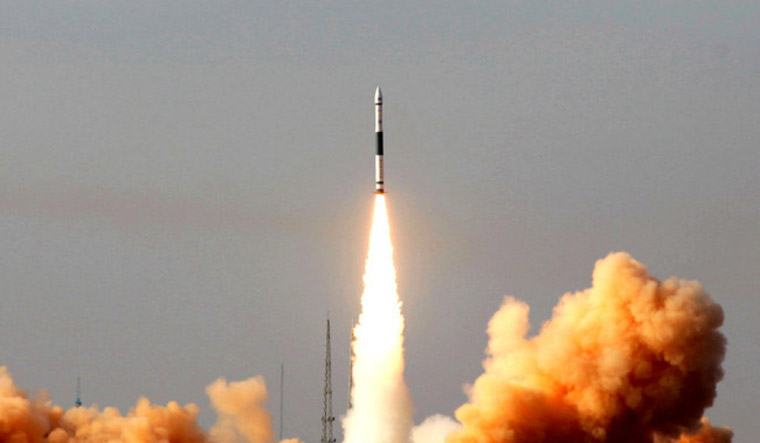
The maiden launch of China’s solid-fuelled Kuaizhou-11 carrier-rocket ended in failure on Friday, resulting in the loss of two satellites.
While the cause of the failure was not yet known, it occurred after the rocket had taken off, Xinhua reported. A malfunction occurred during its flight after it took off from the Jiuquan Satellite Launch Centre in northwestern China, at 12:17pm local time.
The Kuaizhou-11 rocket has a lift-off mass of 70.8 tonnes, capable of taking cargo into low-earth and sun-synchronous orbit. Originally slated for launch in 2017, it was delayed by three years.
Kuaizhou, meaning fast-ship, is a class of rockets encompassing the Kuaizhou-1, Kuaizhou-1A, Kuaizhou-11 and planned Kuaizhou-21 and Kuaizhou-31. The Kuaizhou-11 was intended to serve as a low-cost carrier rocket aimed at providing satellite launches at a rate of $5,000 per kg, a CASIC official told Xinhua in 2017.
This marks China’s third rocket failure in 2020, out of 19 launches. The debut launch of the Long March 7A in march had also failed, as had the Long March 3B in April.
The Kuaizhou-11 is derived from missile technology, particularly the DF-21 ballistic missile platform. The launch was managed by ExPace, a commercial subsidiary of the China Aerospace Science and Industry Corporation (CASIC), the country’s largest missile manufacturer. ExPace has been touted as China’s answer to SpaceX, as the global race to commercialise satellite launches and offer increasingly affordable solutions to sending cargo to space intensifies.